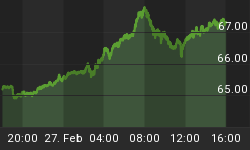Last week the Greek government, with the heavy handed support of its larger friends in the Eurozone, succeeded in coercing some 85.8 percent of private sector bondholders to "voluntarily" exchange €206 billion-worth of Greek sovereign bonds for newer bonds with longer maturities, lower coupon rates, and a face value of 53.5 percent less than the original paper. The benignly termed "haircut" (more accurately described as a "scalping") is particularly painful for those buyers who were literally strong armed by their own governments into buying Greek bonds in the hopes of achieving regional financial stability.
A monstrous creation of political expediency, the deal may have solved Greece's short-term funding of some $19 billion in bonds due on March 20th, and secured the likelihood of its receipt of an additional $170 billion package bailout. While it is still far too early to tell if the agreement does anything beyond kicking the can down the road a few paces, the immediate lessons are easier to grasp. Most strikingly, this episode reveals just how cheaply the rights of private bondholders will be held in the new world of sovereign bailouts.
One particularly pernicious aspect of the settlement was the declaration that the European Central Bank (ECB) deemed itself to be 'senior' to all other bondholders and was thusly able to recoup all its invested principal. This unilateral action should justifiably shock traditional private bond buyers worldwide. Previously, such draconian and politically self-seeking actions would have been the purview of revolutionary tyrannies, not the modus operandi of staid Continental bankers.
Equally troubling was the underhanded manner in which the Greek government used collective action clauses to pressure bondholders to accept a 'voluntary' swap. Using these legal devices, even those who had said "no" were declared retroactively to have said "yes." In this manner, more than 90% of bondholders are now on board. The Soviets could not run a better election.
At the last hour, the whole messy deal was deemed a 'credit event' by the International Swaps and Derivatives Association thereby triggering payments of so-called credit default swaps (CDS). Interestingly, investors only learned of these modest reimbursements after the deal was finalized. This delayed decision could fuel suspicions that the action was deliberately timed to bring pressure on bondholders to accept the Greek government swap offer.
These three official actions likely will erode confidence quietly and will create extensive long-term damage to the image of government bonds as a riskless asset class. Coming at a time of recession and increased government spending, it could herald acute funding difficulties for less creditworthy nations. It may also scare some private buyers away from the highest rated sovereign debt, leaving central bankers as the increasingly dominant market maker. An analysis of this problem can be found in the latest issue of Euro Pacific's newsletter.
Forgetting the lessons of the pre-Bretton Woods era, many institutional investors had been lulled into the fond belief that in the modern world governments of politically important developed nations would not default. This belief had allowed many nations to borrow massively even as they failed to address fiscal imbalances. The Greek default should shatter this belief.
At its core, this deal was a means to protect the financial status quo. And from my perspective the biggest losers, worse off even than the private bondholders, are Greek citizens who must live under the weight of a crushing austerity imposed upon them from without. It would have been far better for the rank and file Greeks if their government had been allowed to default the old fashioned way, and all lenders, public and private would have been made to pay, in full, for their ill-advised loans. In so doing, a newly impoverished Greece would have at least a real chance for a fresh start.
The unemployment rate among young Greeks is some 51 percent. Unless the situation reverses itself quickly and decisively, Greece may never be able to repay even a much reduced debt burden. In the meantime, the Greek people will be subject to inescapable poverty. But it need not happen. Some four years ago, Iceland put ECB austerity proposals to a referendum. The people voted for default. Now it appears as if Iceland is on the road to recovery. Last month, S&P raised Iceland's credit rating, illustrating what may happen if free markets are allowed to function. Greece may be an example of the dangers of best laid plans.
Subscribe to Euro Pacific's Weekly Digest: Receive all commentaries by Peter Schiff, John Browne, and other Euro Pacific commentators delivered to your inbox every Monday.
Are you a serious investor? Then don't miss hard-hitting, original analysis in every issue of Euro Pacific Capital's Global Investor newsletter. Click here for more information.
For a great primer on economics, be sure to pick up a copy of Peter Schiff's hit economic parable, How an Economy Grows and Why It Crashes.















